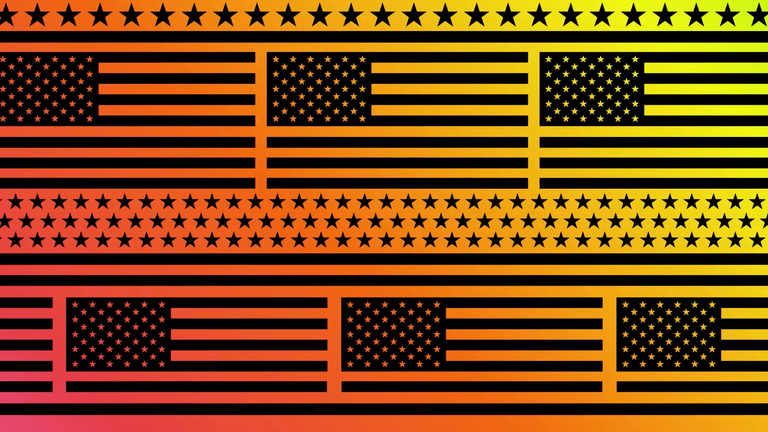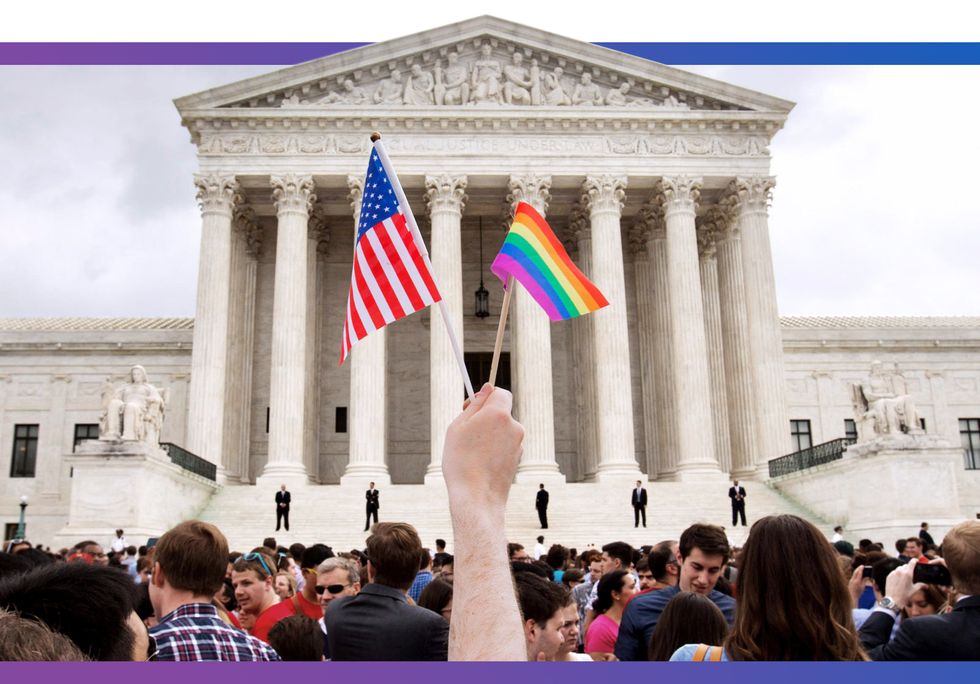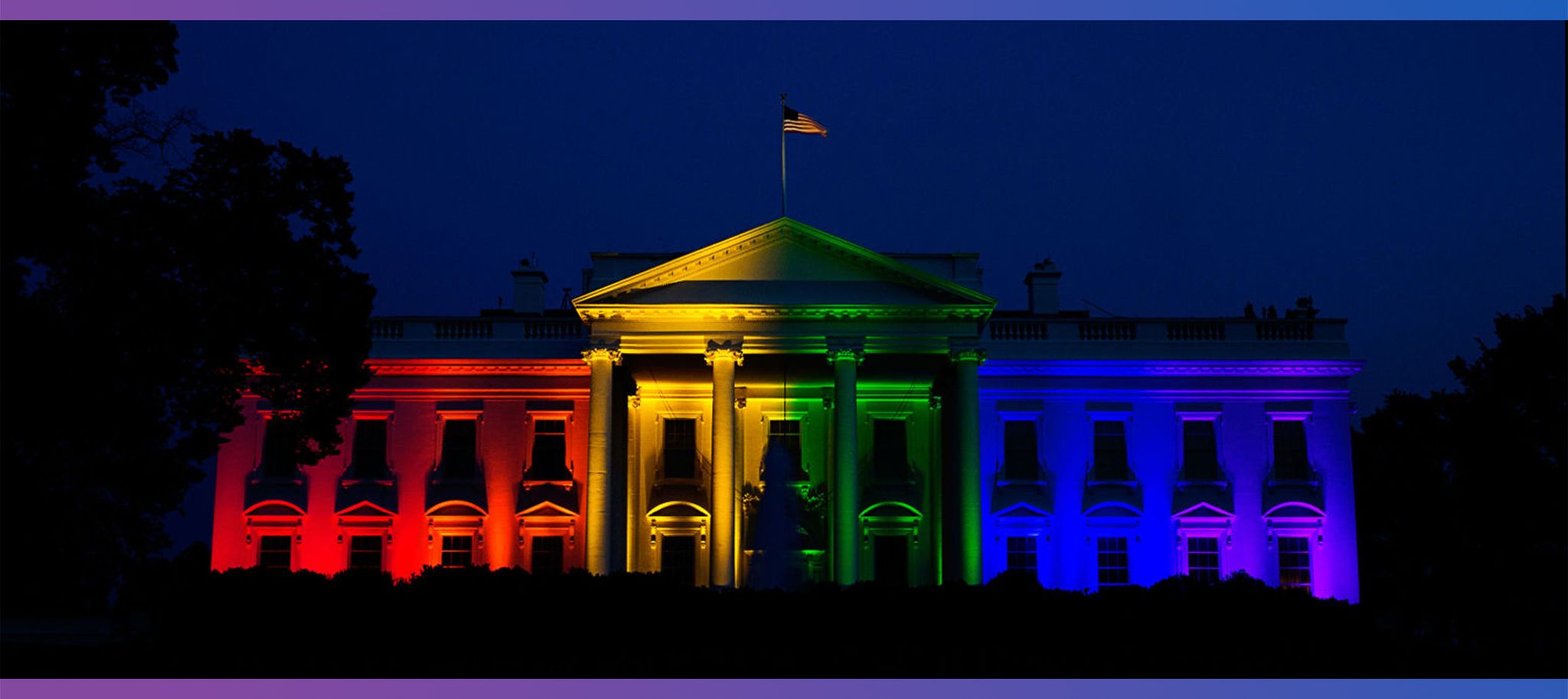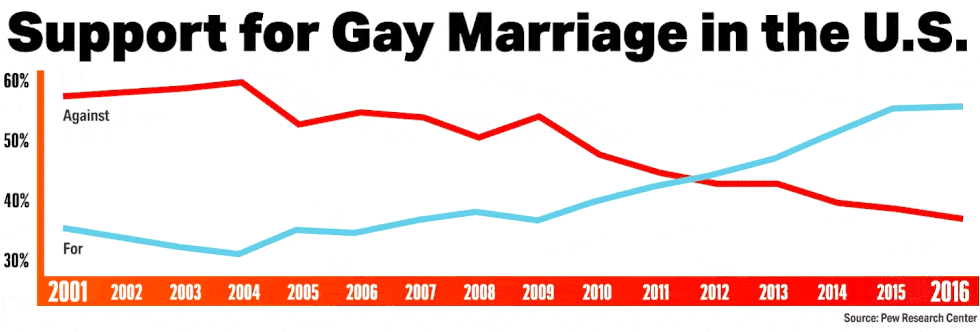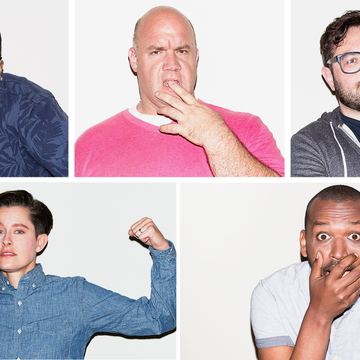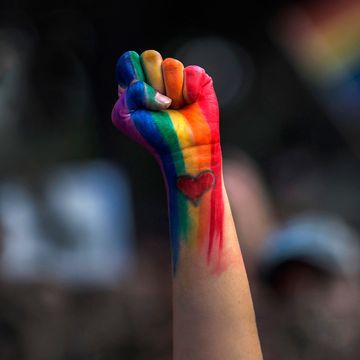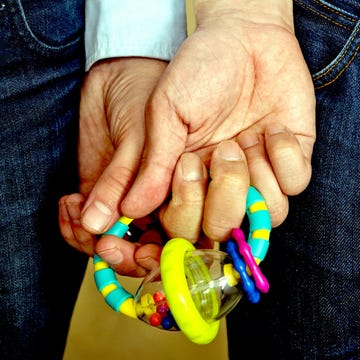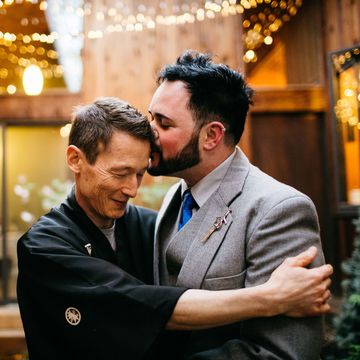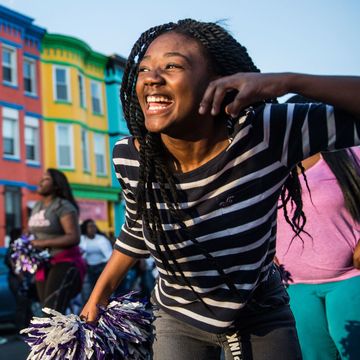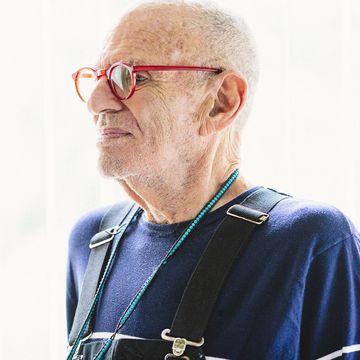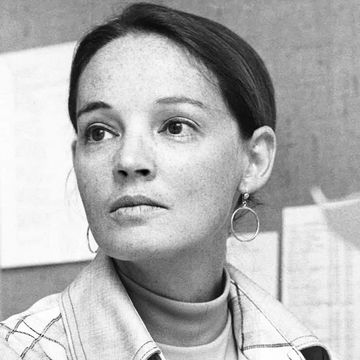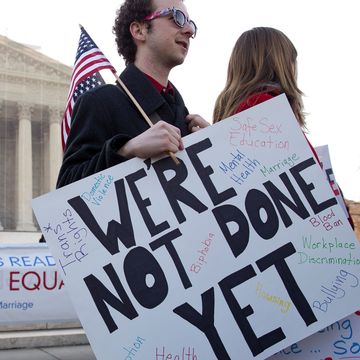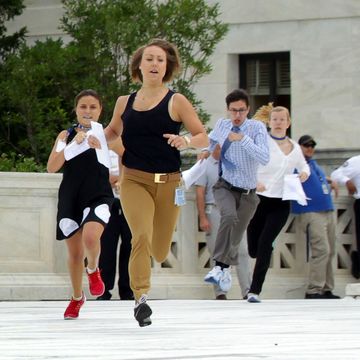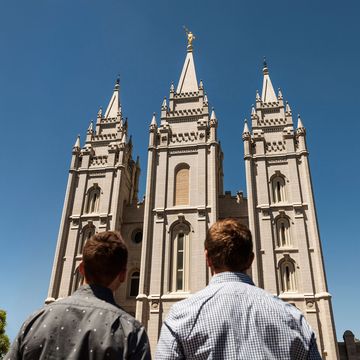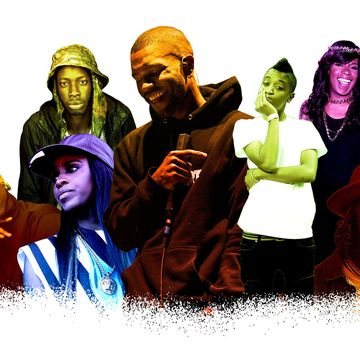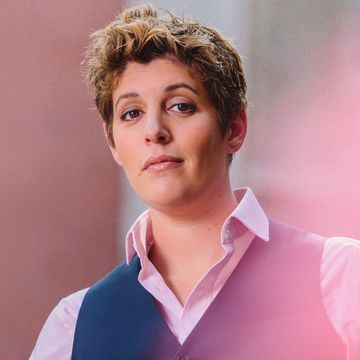1. We've Had 365 Days of Marriage Equality
by Dave Holmes
A lot can happen in a year.
On June 26, 2014—one year before the Obergefell v. Hodges decision—marriage was an option for same-sex couples in 20 states. Twenty-eight states had constitutional amendments banning marriage equality. If you were married in Massachusetts and you had to move to Michigan, by the time you got there, you'd be roommates. In some states, the rules changed from county to county; you could be next of kin on one corner and strangers when you crossed the street.
On June 26, 2015, we turned on the news at 10:00 a.m. at to see interns spilling out of the courthouse—sprinting like Tom Cruise in every Tom Cruise movie—to deliver the Supreme Court's Obergefell ruling to waiting reporters.
We won.
Marriage equality was the law of the land. All of it. We felt relief. Joy. And a feeling whose name gets thrown around a lot in LGBT circles: pride.
If same-sex marriage was a thing that seemed inevitable, it also seemed unreachable, at least in our lifetimes. We knew we'd have a state here and a state there, a patchwork of different rights and titles across the country. But full, coast-to-coast marriage equality? In a country whose last president supported a constitutional amendment to ban it? Preposterous.
We won. The celebration lasted all weekend, and then some. The White House was lit up in the colors of the rainbow flag. Brands—beers, breakfast cereals, the late Colonel Sanders—seemed determined to outgay one another. In the real world, people voiced their support for the decision, without the "…but I'm not gay myself" disclaimer I was so used to hearing; if the jubilation made a straight person appear gay to a passing stranger, who could possibly care? We were equal.
We won, and we were one.
I remember taking a moment to savor the victory, to think about the generations of American kids who would grow up reading about same-sex marriage bans the way mine did about Jim Crow. I thought about the gay kids in that generation who would have the chance to grow up feeling fully equal. I thought about all of us who'd been fighting this fight on the streets and in courthouses and at Thanksgiving dinner tables for decades, and our younger counterparts—being born that very day—who wouldn't believe we ever had to.
And then, because it was June 2015, I got back to work and wrote another post about Donald Trump's latest gaffe and how it surely signaled the end of his campaign.
A lot can happen in a year.
Two weeks shy of the one-year anniversary of the ruling, we watched the horrific news come in from Orlando. A mentally unstable person—or a terrorist, or a possibly closeted gay man, or maybe all three of those things—got his hands on a semi-automatic rifle and a Glock, and he slaughtered dozens of LGBT people. Hours later, Los Angeles police stopped a man in a car stocked with explosive chemicals and weapons, on his way to the Los Angeles Pride Festival. In one brutal morning, the security and stability we were starting to feel were torn away.
What we began to suspect in the last year became absolutely clear: The fight for our freedom is just beginning.
After Obergefell, we got to work—setting dates for weddings that were decades overdue or coming up with new excuses for why we didn't plan to get married ourselves or—and we ask your forgiveness here—filming the flash-mob surprise-proposal videos we'd then post on YouTube. We had a lot of catching up to do.
So did the people who oppose us, not all of whom carry assault rifles. They clocked in, and they worked overtime. Claiming, as then-viable GOP presidential hopeful Mike Huckabee did, that Obergefell would effectively make Christianity illegal. Saying with conviction that the most essential element of freedom is that cakes only be made for people whose private behavior aligns with the baker's religious beliefs. Invoking the specter of cross-dressing pedophiles to strip cities of their LGBT anti-discrimination laws.
Religious-freedom proposals are creeping their way across the country, state by state, a photo negative of the slow progress marriage equality made in the last 15 years. Our safe spaces, our bars and dance clubs and parades, feel at least for the moment like risky places to be. Whether this is a death spasm or the beginning of a longer, larger struggle, this much is clear: We have a fight on our hands.
So where are we now, one year later? After a year that gave us marriage equality and the worst mass shooting in modern American history? New freedoms for LGBT families and dozens of potential new state bills to roll them back? Barack Obama on the cover of Out and three GOP presidential hopefuls speaking at a "Kill the Gays" rally?
In One Year Out, we're looking at the lives of LGBT people in 2016. We're looking at gay newlyweds, gay parents, gay couples who have no interest in getting married. At people in the Black Lives Matter and Mormon communities. In the world of hip-hop, where use of the word faggot is still rampant. In stand-up comedy, in sports, and in weddings in all 50 states.
The struggle isn't over. Culture never evolves in a straight line. A lot will happen in the years to come. But visibility is the key to victory. We win when we show our faces and tell our stories.
So this is where we stand, together, today. One year out.

